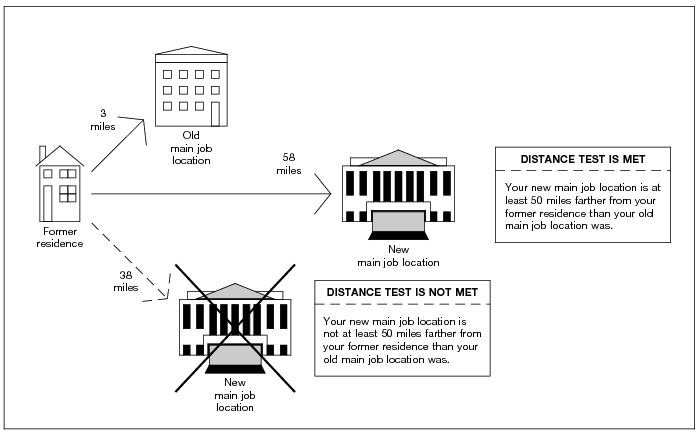While there is excitement at the idea of starting fresh in a new place, the fact of the matter is that the process of moving is just a pain. Moving is expensive whether you hire professionals or do it yourself for a cross country move or the next city over. Uncle Sam just might cut you a break if you have started a new job in conjunction with your move. According to the Internal Revenue Service, moving expenses only qualify as a deduction if the move relates to a new job or business. There are three particular tests to determine when moving expenses can be deducted. They are an “above-the-line” deduction which means they reduce your adjusted gross income and can be claimed even if you do not itemize deductions.
Moving expenses may be deductible if three criteria are met:
- Your move is closely related to the start of work. If you have moved to a new job or have already moved within a year of starting a new job, you may be able to claim moving expenses on your tax return if you meet the next two criteria.
- The distance test – if your new job or business must be at 50 miles further than your old job was from your previous home. In other words, if you old home is 10 miles from your old job, your new job must be at least 60 miles away from your old job.

Image via IRS
- The time test – Once you have moved, you must be employed full-time for a period of at least 39 weeks during the 12 months after you move. If you’re self-employed, you must work full-time for 78 weeks in the first 24 months following your move.
If your relocation meets all three criteria and your moving expenses are paid out-of-pocket and not reimbursed by your employer, the expenses can be deducted from your tax return. If your employer reimburses your moving expenses, you must claim the money as income on your tax return.
A scenario that meets all of the IRS’s criteria is if an individual lives in Houston and is offered a job in Phoenix without reimbursement for moving costs. The new job starts in six weeks, so this person needs to find a place to live, pack up his belongings, make the trip and move to a new place at his own expense. He starts work at the appropriate time and remains with that company for a full year.
The distance test is fulfilled because the new home is closer to the new job than the old residence by a substantial amount. Time is definitely appropriate in this example because the new hire will be at work only a short time after the move and remains on the job for over thirty-nine weeks.
Retirees
People who have been living abroad and are moving to the United States to retire are also allowed the moving expense deductions, even if they are not moving to a new job.
Military
All unreimbursed elements of military moves that are authorized by military orders or a permanent change of station are always deductible.
Deductible Expenses
You may deduct the actual unreimbursed costs of moving yourself and your family, including hotels that may be needed during the process of moving.
- Connect/disconnect fees for utilities at either end of the move.
- Costs for packing and transporting household goods, personal effects, pets, and vehicles.
- If you or a member of your household drive to the new home, the cost of gas and oil is deductible, so be sure to keep your receipts.
- Your travel costs and your family’s travel costs to the new home are deductible. If you drove and your family flew, both sets of expenses would be deductible. This includes the cost of one night’s lodging. The route must be the most direct route available, so sightseeing and detours on your way to the new home are not deductible. The cost of meals does not qualify because the IRS assumes that you likely would have eaten anyway even without the job change.
- The cost of storing and insuring your possessions for up to 30 days after they leave your former home is deductible in case there is a lag in time before your new home is available for move-in.
Take a minute to consult your tax advisor about what you might be able to claim on your taxes. For more information about moving expenses and tax deductions, IRS Publication 521 is a good resource.
This article should not be considered as legal, tax, or financial advice. It is intended to provide general information only. Consult a professional tax advisor for specific information on how the tax laws apply to you and your specific situation.








